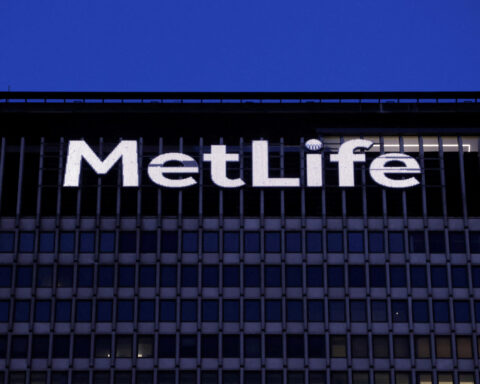When Iowa legislators voted in April to allow 14-year-olds to work overnight shifts, they advanced an agenda stealthily coordinated by a major conservative advocacy group. The Foundation for Government Accountability has orchestrated a systematic state-level push to weaken child labor regulations, achieving remarkable success in rolling back protections. This lobbying effort comes as the Biden administration scrambles to enforce federal child labor laws amid surging violations.
The FGA notched its biggest win in March, playing a key role designing a new Arkansas law eliminating work permits and age verification for workers under 16. The legislation's sponsor openly acknowledged it "came to me from the Foundation for Government Accountability." Experts warn eliminating oversight will make it far harder for Arkansas to monitor child labor abuses. The law sparked such fierce backlash that legislators quickly passed new penalties on violators, even after weakening enforcement mechanisms.
In multiple states, the FGA has helped lawmakers draft and revise legislation to relax limits on working hours and hazardous occupations for minors. The group frames this agenda as promoting parental rights and reducing red tape. But it aligns with a broader conservative mission to dismantle regulations of all kinds. Since 2016, the FGA's lobbying arm has hired 115 statehouse lobbyists and advanced policies in 22 states.
This coordinated deregulation push comes as the Labor Department steps up child labor law enforcement, citing a 69% increase in violations since 2018. Officials say employers increasingly rely on underage workers due to the labor shortage, with thousands of minors found illegally employed in meatpacking, construction and factories.
The FGA portrays its proposals as keeping existing protections while rightly empowering parents to decide if their teens should work. But the practical effect is to legalize the hiring of 14-year-olds for hazardous jobs and make enforcement far more difficult, experts contend. The FGA's model bill in Arkansas eliminated the work permits that provide documentation of minors' employment.
This measure, although advertised as lowering bureaucratic obstacles, impaired the ability of regulators to see clearly. "Lack of knowledge regarding the whereabouts of young children's employment hinders proactive investigations and the assurance of child safety," stated Annie Smith, the director of the Human Trafficking Clinic at the University of Arkansas School of Law.
Some employers indeed want to tap cheap young labor instead of raising wages to attract older workers. The FGA's state victories clear a path to legally hire more child workers with little accountability. "No child should be working in dangerous workplaces, period," said Labor Department Solicitor Seema Nanda, who called the FGA-backed bills "irresponsible."
Since 2011, the FGA has systematically advanced conservative policies, often inserting "prefabricated" bills via a network of think tanks. It frequently alleges overreach by regulators, arguing parents alone should determine if their 14-year-old works late nights on an assembly line. Framing deregulation as a matter of parental rights helps these unpopular policies succeed quietly.
The FGA is funded by major conservative donors, with over 70% of its $10 million in revenue coming from just 14 groups in 2020. It grew from $50,000 in seed money to $4 million annually within 4 years. The lobbying arm, Opportunity Solutions Project, now has a presence in 22 states.
This coordinated advocacy produces concrete results. In 2021, the FGA claimed 48 policy victories in Arkansas alone, identifying it as a “super state” for its efforts alongside Missouri and Iowa. After 144 “state policy reform wins” in 2022, the FGA is poised to leverage those changes nationally. "After a sufficient number of states successfully implement a reform, we can leverage the progress and demonstrated outcomes to generate support for federal reform," stated Tarren Bragdon, president of FGA.
Some legislators initially enthused about the FGA's proposals have recoiled upon realizing their full impact. A parental permission requirement was added to soften Missouri's version of the FGA's draft bill allowing more teenage labor. Even policies marketed as empowering parents have proven so sweeping that lawmakers insisted on guardrails.
The FGA's wins continue steadily eroding child labor protections amid a time of demonstrated enforcement need. But some leaders have recognized the dangerous consequences of unleashing unrestricted youth employment. Reversing course after public outrage, Arkansas took the unusual step of reinstating penalties on violators shortly after weakening oversight. Such reactions suggest the FGA's vision of unregulated child labor remains deeply unpopular with large segments of the public.

 Matt Petgrave makes crowdfunding appeal, calls death of Adam Johnson a 'tragic accident'
Matt Petgrave makes crowdfunding appeal, calls death of Adam Johnson a 'tragic accident'
 FDA says decongestant in many cold medicines doesn't work. So what does?
FDA says decongestant in many cold medicines doesn't work. So what does?
 Nordstrom to be acquired by Nordstrom family and a Mexican retail group for $6.25 billion
Nordstrom to be acquired by Nordstrom family and a Mexican retail group for $6.25 billion
 Bangladesh seeks extradition of ousted leader Sheikh Hasina from India
Bangladesh seeks extradition of ousted leader Sheikh Hasina from India
 Pandas An An and Ke Ke celebrate their 1st Christmas in Hong Kong
Pandas An An and Ke Ke celebrate their 1st Christmas in Hong Kong
 An analyst looks ahead to how the US economy might fare under Trump
An analyst looks ahead to how the US economy might fare under Trump
 Shohei Ohtani wins 3rd AP Male Athlete of the Year award, tying Michael Jordan for 1 shy of record
Shohei Ohtani wins 3rd AP Male Athlete of the Year award, tying Michael Jordan for 1 shy of record








